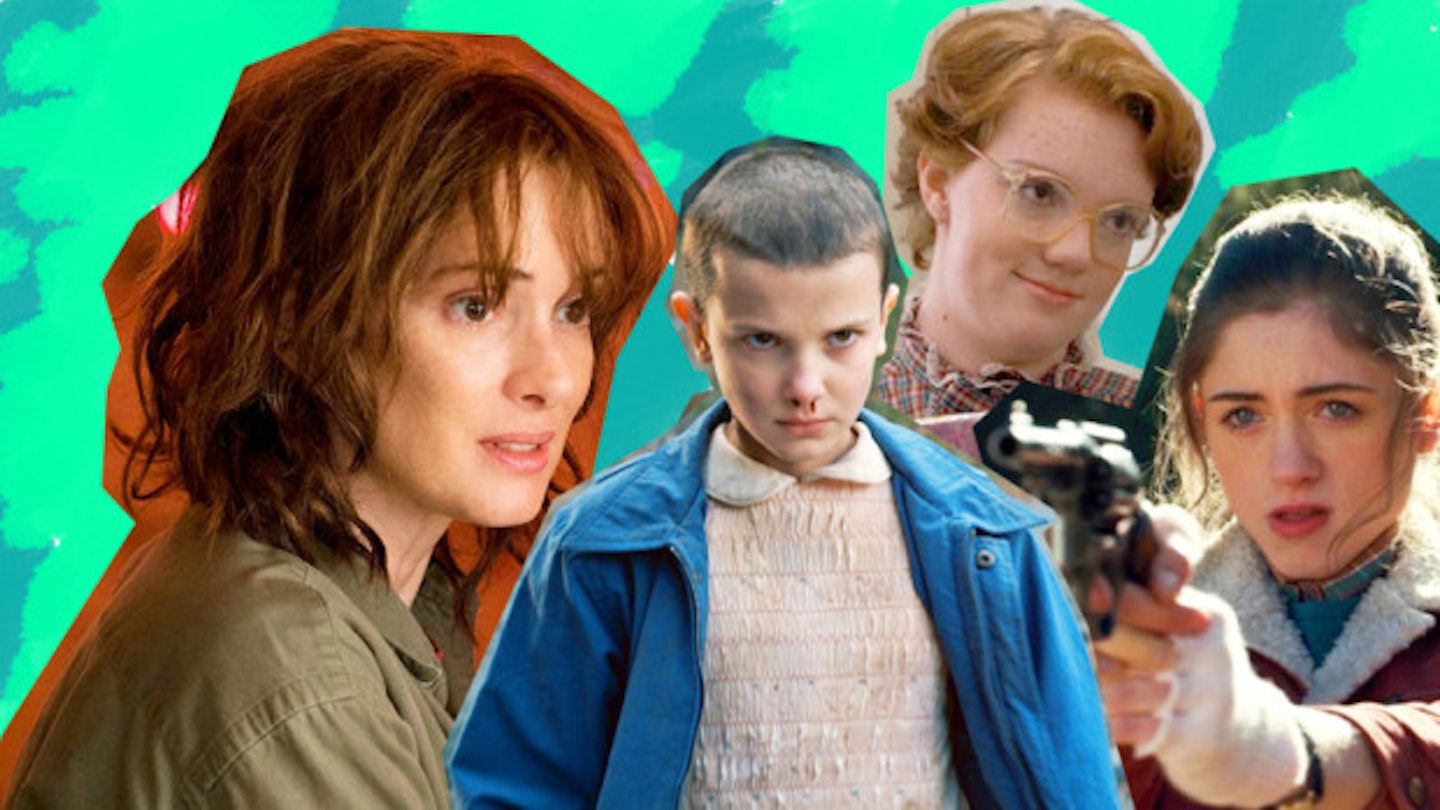It’s the most popular show on IMDB and boasts a 94% Fresh rating on Rotten Tomatoes –Stranger Things is the latest Netflix production that’s dominating conversation around the world. It’s easy to see why: blurring the line between sci-fi and horror, it features a stellar cast, intriguing plot and heaps of 80s nostalgia. The fact you can binge-watch it all in a weekend whilst wearing your pyjamas? Even better.
For the uninitiated, Winona Ryder plays Joyce Byers, whose son Will goes missing in the sleepy town of Hawkins, Indiana in 1983. Whilst the police are slow to react, Joyce and Will’s friends suspect foul play - what they uncover is far more sinister than they ever could have anticipated. There’s a lot to love, especially all the nods to eighties pop culture, such as Close Encounters of the Third Kind and E.T, but also Twins Peaks and Stand By Me. There’s also a fantastic soundtrack, featuring the likes of New Order, Joy Division and (possibly the greatest song ever written) Africa by Toto. It’s this broad appeal that has attracted the interest of viewers who wouldn’t ordinarily consider themselves sci-fi fans, which is no mean feat.
Yet, in trying to capture the spirit of the eighties and pay homage, I feel like the show has unwittingly adopted old-fashioned attitudes towards women too.
The four most notable female characters are Joyce Byers, Nancy Wheeler, Eleven and Barb Holland. Whilst they have far more screen time and are more realised than the likes of Laura Palmer or even Alice Dainard from Super-8, there’s still so much that is troubling about the way women are represented in Stranger Things. They play into tired tropes – the hysterical mother, the near-mute weirdo, the virtuous teen virgin and her nerdy best friend. It reads like a run-down of characters in a John Hughes film, and whilst The Breakfast Club was great in 1985, it hasn’t aged particularly well.
Let’s break it down. First there’s Joyce – props to Winona Ryder, because even when she seems to be losing her mind, she has a vulnerability to her that makes her totally compelling. She’s accused of harming her son and being a bad mother, and then dismissed as crazy by everyone – including her own family – but remains sympathetic, and is probably the most developed out of all the female characters.
Then there’s Eleven. After escaping a research facility she develops a rocky friendship with Will’s friends, particularly Mike Wheeler. In a transformation sequence reminiscent of Ally Sheedy’s turn in The Breakfast Club, she metamorphoses from freak to chic, and Mike concedes ‘You look pretty’. Yeah. The girl has amazing psychic powers, but she’s reduced to a cute girl in a blonde wig and a dress, because apparently, that’s more important.
Next, Nancy Wheeler – a smart, highly capable teenager dating the most popular boy in school. She chooses to have sex with him at a party, which is kind of great – a teenage girl taking control of her own sexuality. Excellent! …Unfortunately, this is then used to humiliate her by her new boyfriend. He apologises. They get back together. Because, y’know, writing graffiti around town referring to someone as a slut is no big deal. Why does Nancy, who’s fearless enough to battle the creepy monsters and investigate her best friend’s disappearance, need a boyfriend at all, least of all one who’s a total dick? It doesn’t add anything to the story; as cute as Steve is, neither does he.
Which brings us to Barb. Sensible, straight-talking, voice of reason Barb. Her death is little more than a footnote – aside from Nancy no one seems to care, Barb’s parents included. Everyone’s all too ready to accept that she just ran away, as if this is a totally plausible explanation for a teenage girl with no history of such behaviour. Poor Barb’s ended up with the worst secondary-character fate since Gendry in Game of Thrones.
What all these characters have in common (with the exception of Barb, who doesn’t have much screen time) is that they seem totally beholden to men. Joyce is dismissed as crazy until the police chief has cause to believe her; Eleven is abused all her life, and even Mike and his friends are total dicks to her on multiple occasions. No one believes Nancy about Barb except Joyce’s eldest son, Jonathan. They’re underutilised, which is criminal considering how much potential they have, and how talented the cast is.
So – what next?
We know Netflix can produce shows with great female characters - Jessica Jones, House of Cards and Sense8 all prove it - so it’s not asking much that Stranger Things step up its game. Part of the problem is that female voices aren’t being heard in television and film because women aren’t visible - if you have more women in the writers’ room, you get better female characters. But that’s not to say men can’t write great female characters – and The Duffer Brothers have created a show with the capacity for this. Perhaps when it’s renewed for a second series we’ll see these stereotypes subverted and challenged. It’s an exceptional show, but in 2016 it shouldn’t be the case that female characters feel like they only exist to support the men.
Like this? Then you might also be interested in:
Obsessed With Stranger Things? Here's What The Kids Look Like IRL
Memes To Help You Express Your Love For Barb From Stranger Things On Social Media
Follow Hannah on Twitter @goodjobliz.
This article originally appeared on The Debrief.
